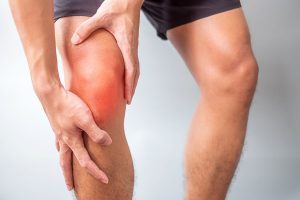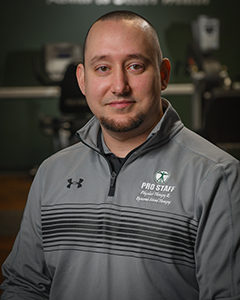Can Physical Therapy Treat Tendonitis?

Tendonitis can be an excruciating and debilitating condition that affects people of all ages and fitness levels. It is often caused by repetitive motion or overuse, which can be challenging to avoid in today’s increasingly active world. Fortunately, physical therapy is a viable treatment for tendonitis, and it can help to reduce the pain, inflammation, and discomfort associated with this condition. Physical therapy offers a variety of techniques to help strengthen the muscles and tendons and improve flexibility, range of motion, and overall health. Combining physical therapy with a healthy lifestyle can improve your quality of life and get you back to doing the things you enjoy.
What Exactly is Tendonitis?
Tendonitis, also called tendinitis, results from a tendon’s inflammation. Tendons are thick cords of tissue that connect muscles to bones, and when they become inflamed, they can cause pain and discomfort. Tendonitis can occur in any part of the body with tendons, but it is most commonly found in the shoulder, elbow, wrist, knee, and ankle.
Proper treatment is necessary to manage tendonitis and reduce pain and discomfort. Pro Staff Physical Therapy can help people with tendonitis by connecting them with qualified healthcare professionals, including physical and occupational therapists, who can provide effective treatment options.
What are the Symptoms of Tendonitis?
The symptoms of tendonitis can vary depending on the location of the affected tendon, but there are some common symptoms that people may experience.
The most common symptoms of tendonitis include:
- Pain in the affected area
- Tenderness to the touch
- Stiffness
- Swelling
- Weakness or loss of strength
- Limited range of motion
- A popping or cracking sensation
- A feeling of warmth or redness around the affected area
It is important to note that other conditions can also cause these symptoms, so seeing a healthcare provider for a proper diagnosis is essential if you are experiencing any of these symptoms.
Where Can Tendonitis Develop in the Body?
Tendonitis is a common condition that can develop in various body parts due to repetitive motions, overuse, or injury. Here are some areas where tendonitis commonly occurs:
- Shoulder: Tendonitis of the rotator cuff tendons is a common cause of shoulder pain, particularly in people who engage in repetitive overhead motions or have experienced a shoulder injury.
- Elbow: Tennis elbow and golfer’s elbow are two types of tendonitis that affect the elbow joint. These conditions are often caused by repetitive wrist and arm motions and can result in pain, weakness, and a limited range of motion.
- Wrist: Tendonitis of the wrist tendons can develop from overuse or repetitive motion, such as typing or playing certain sports.
- Hip: Tendonitis of the hip flexor tendons can cause pain and stiffness in the front of the hip joint and can be caused by activities that involve running, jumping, or sudden changes in direction.
- Knee: Patellar tendonitis, also known as jumper’s knee, is a type of tendonitis that affects the tendon connecting the kneecap to the shinbone. This condition often affects athletes who participate in jumping and running sports.
- Ankle: Achilles tendonitis is a common condition that affects the tendon that connects the calf muscles to the heel bone. This condition is often caused by overuse and can result in pain, swelling, and stiffness.
How Can Physical Therapy Treat Tendonitis?
Physical therapy is an effective treatment option for tendonitis that can help reduce pain, improve range of motion, and promote healing. A skilled therapist will design a personalized treatment plan that may include techniques, equipment, and exercises to address the patient’s needs. Here are some methods that might be used to treat tendonitis during physical therapy:
- Manual Therapy: This involves hands-on techniques such as massage, mobilization, and stretching to improve tissue function, promote healing, and reduce pain and stiffness.
- Modalities: Therapeutic modalities like heat or ice therapy, electrical stimulation, and ultrasound may reduce inflammation and promote circulation, helping to relieve pain and encourage healing.
- Strengthening Exercises: Specific exercises that target the affected tendon and surrounding muscles may be prescribed to help improve strength and flexibility, reduce pain, and prevent future injuries.
- Stretching: Gentle stretching exercises can help improve the range of motion and flexibility, reduce stiffness, and enhance tissue healing.
- Education: Patients may be educated on proper posture and mechanics, body mechanics, and activity modification to help reduce the risk of future injuries.
- Supportive Equipment: Supportive equipment such as braces, splints, and taping may reduce pain, support the affected area, and facilitate healing.
Physical therapy for tendonitis is highly individualized, and treatment methods may vary depending on the patient’s specific condition and needs.
How Long Does Physical Therapy Take?
During physical therapy for tendonitis, a skilled therapist will monitor the patient’s progress and evaluate improvements in range of motion, function, and strength. Soft tissue injuries typically require six to eight weeks to heal, so a standard physical therapy program for tendonitis may last around that duration. The duration of treatment may vary depending on individual factors such as the severity of the condition, compliance with the treatment plan, overall health, and fitness level.
- Frequency and Duration of Sessions: The frequency and duration of physical therapy sessions can also vary depending on the patient’s needs and goals. Initially, patients may need to attend physical therapy sessions two to three times per week, gradually tapering off to once a week or less as they progress.
- Compliance: Patient compliance with the physical therapy program is also a critical factor in the success and duration of treatment. Patients who diligently attend their sessions, follow their therapist’s instructions for exercises and stretches, and make lifestyle changes to support their recovery will likely see better outcomes and may require fewer sessions overall.
- The Nature of the Condition: The type and severity of the tendonitis can also impact the duration of physical therapy. For example, a patient with mild tendonitis may only need a few weeks of physical therapy. At the same time, someone with a more severe case or multiple affected areas may require several months of treatment.
- Overall Health and Fitness Level: The patient’s overall health and fitness level can also impact the duration of physical therapy. Patients in good physical shape may require less time in treatment to achieve their goals, while those who are less fit or have other health conditions that impact their mobility may require more time and effort to reach their treatment goals.
Why Choose Pro Staff for Physical Therapy for Tendonitis?
Pro Staff is the #1 choice for physical therapy when suffering from tendonitis. Our staff is highly trained, and we use only the most advanced techniques to help you get back to your best self. Our unique value proposition sets us apart from our competitors: we care about your health first and foremost. When you come to Pro Staff, you’ll be treated by a team of professionals dedicated to helping you regain your strength and mobility.
Our staff is trained in many different areas, so they can tailor their treatment plan to your needs, whether related to pain management or rehabilitation following surgery. We also strongly focus on preventative care, which means we’ll work with you to develop an exercise routine that helps ward off future injuries. Book your appointment today!
Pro Staff Institute, LLC, has a network of outpatient physical rehabilitation centers in New Jersey. Pro Staff was founded in 2010 by Frank Pavlisko and Michael Maffucci. Through Frank’s 25 plus years experience in Physical Therapy and Michael’s experience in Management Services, our goal is to exceed customer expectations by providing the highest quality of service in a fun, family, friendly, and encouraging environment.
PRO STAFF LOCATIONS
OFFERING CERTIFIED
HAND THERAPY
Managing Diabetes: The Role of Physical Therapy
Managing Diabetes: The Role of Physical Therapy As of 2024, approximately 38.4 million Americans, or 11.6% of the U.S. population, have diabetes. Of these, 29.7 million cases are diagnosed, while an estimated 8.7 [...]
Staying Active and Injury-Free During Summer Activities
Staying Active and Injury-Free During Summer Activities Summer is a fantastic time to engage in outdoor sports and physical activities. Whether playing soccer, tennis, cycling, or jogging in the park, staying active is [...]
The Importance of Posture: How Proper Alignment Can Prevent Pain and Injury
The Importance of Posture: How Proper Alignment Can Prevent Pain and Injury In today's fast-paced world, where many hours are spent over desks, smartphones, and computers, posture is often neglected. Poor posture can [...]




